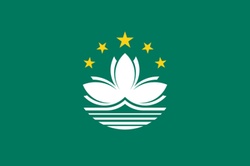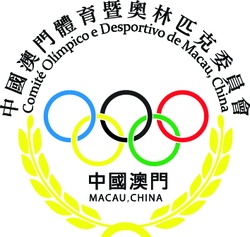Macau is one of two special administrative regions of China, the other is Hong Kong. Macau is bordered by China and the South China Sea and is a special administrative region (SAR) of China.
The Chinese government assumed sovereignty over Macau on the 20th December 1999. The old urban architecture of Macau is one of the most attractive features of the city.
Popular tourist attractions include shrines, temples, Chinese gardens, churches, forts, statues, parks and monuments.
The most famous being the Ruins of Saint Paul's Cathedral and the two islands of Coloane and Taipa connected by bridges. Its main exports are Clothing and textiles.
The name Macau is derived from the Chinese A-ma-gao Bay of A-Ma. A-ma was the name of a Chinese goddess, popular with the Chinese sailors and fishermen who had a temple on the peninsula when the Portuguese first anchored there in 1513.



